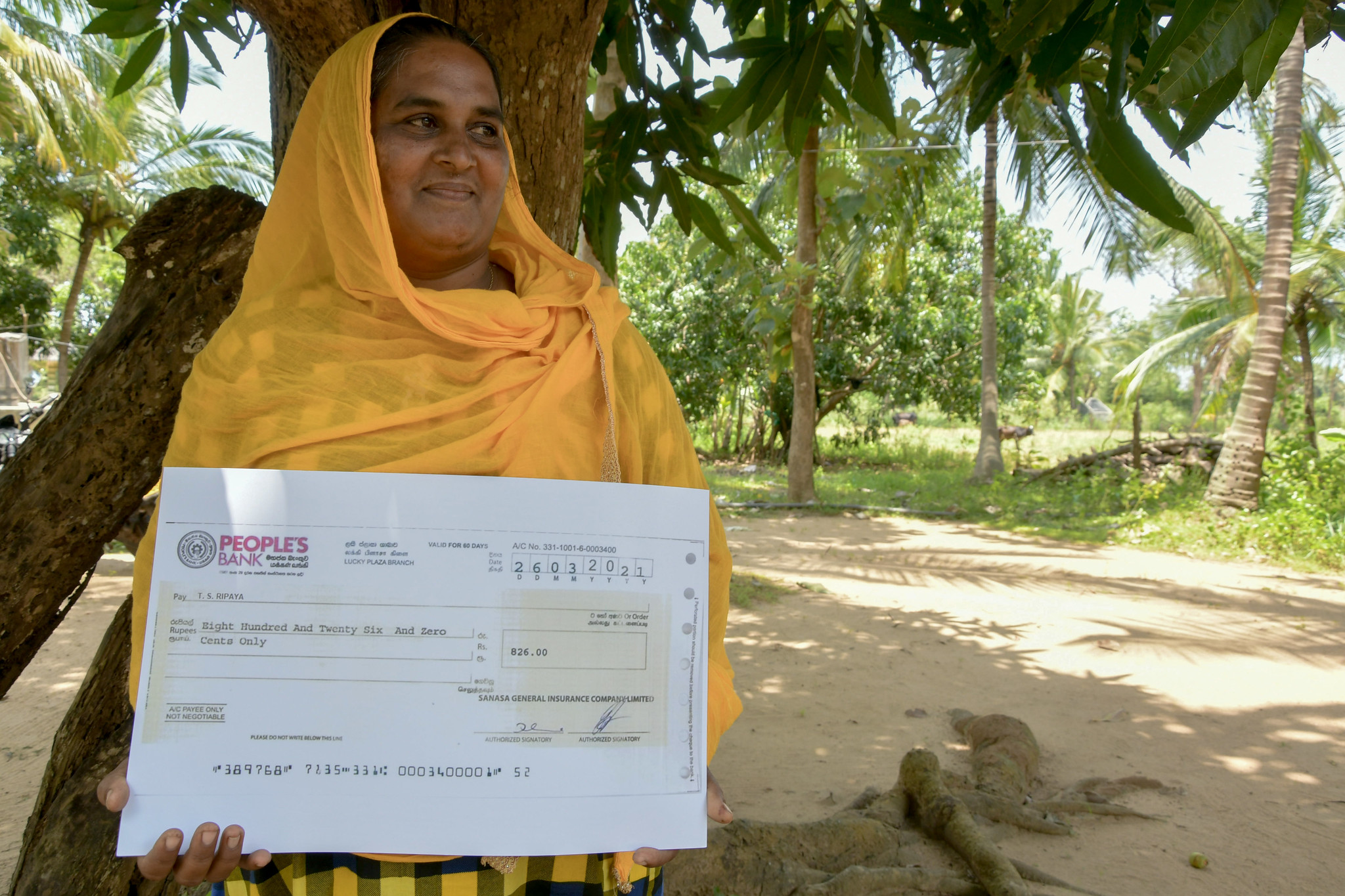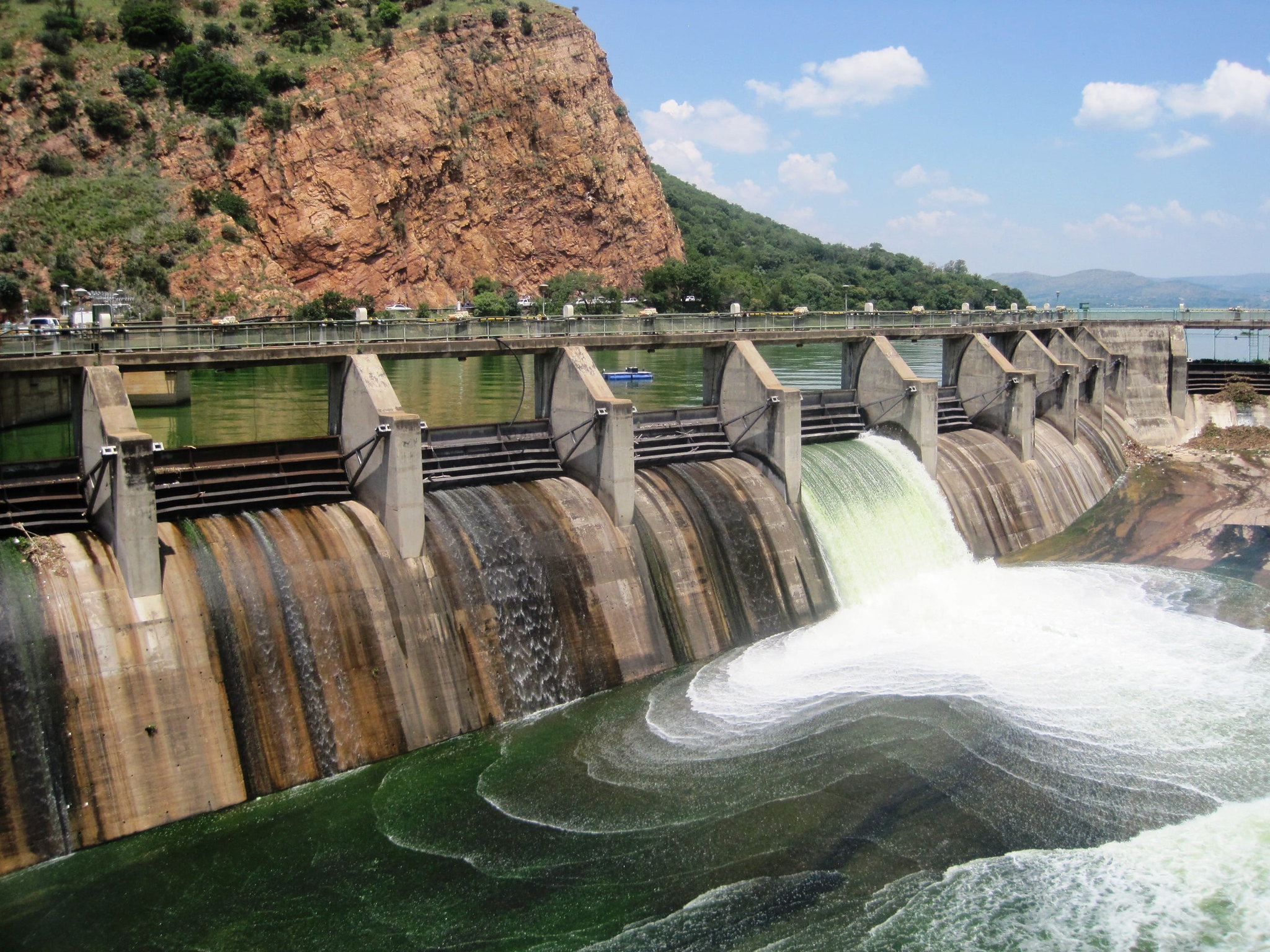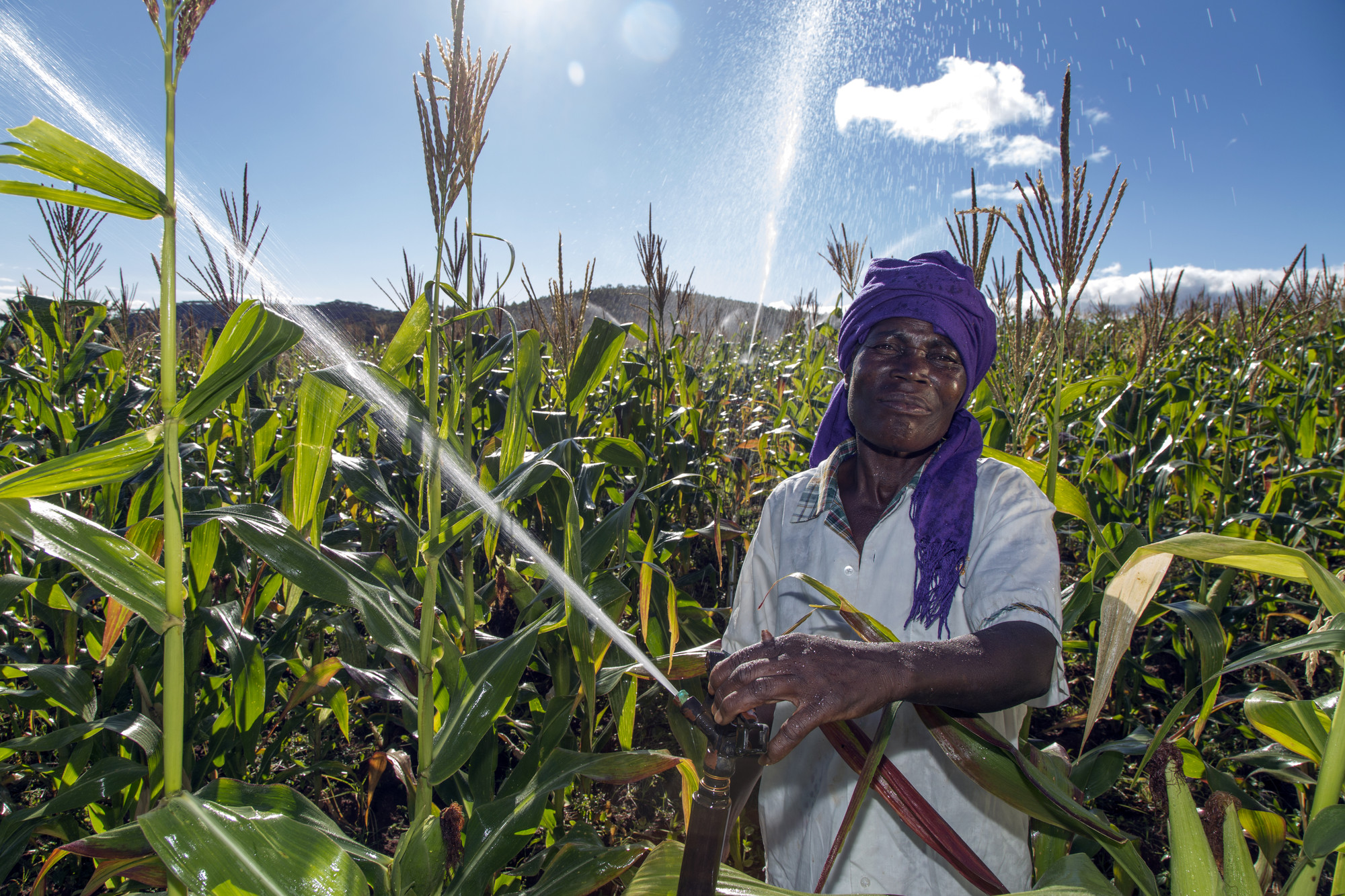Climate adaptation and mitigation
It is largely through water that most people will ‘experience’ climate change: unpredictable rainfall, droughts and floods, and the disruption this will bring to our food systems and drinking water supplies. IWMI’s research addresses ways to maximize water productivity. This means developing more accurate rainfall predictions to support drought and flood warning systems, promoting ‘climate-smart’ agricultural technologies, increasing water storage, and circular resource and waste systems, and water resources modelling, monitoring and scenario planning, in order to identify who is using how much water and where it is being used. It also means addressing how watersheds, wetlands and mangroves can provide nature-based solutions to moderate climate extremes and increase resilience to climate change.
Index-based Flood Insurance
The goal of index-based flood insurance (IBFI) is to increase the resilience of low-income, flood-prone communities to extreme climate events. IBFI uses satellite imagery and computer models to determine when the depth and duration of a flood exceeds predetermined limits. This makes IBFI more reliable and less expensive than traditional insurance. The model can also estimate probable crop losses and trigger automatic payouts. The good news is that IBFI has been introduced in Bangladesh over the last year, building on the successes of its implementation in Bihar, India.
 The insurance provides farmers with the best opportunity to cope with the occurrence of extreme climate events, and even if such events do not occur during one year, the bundled benefits should improve productivity.
The insurance provides farmers with the best opportunity to cope with the occurrence of extreme climate events, and even if such events do not occur during one year, the bundled benefits should improve productivity.
Satellite-based indices can be used to cover farmers for several climate perils at once. In addition to floods and droughts, farmers could insure themselves against heat waves, coastal inundation and cold spells with one insurance product.
In India alone, scaling up IBFI could protect more than a million farmers by 2025. While the goal is resilience, this would also create jobs and empower women, who are often more vulnerable to environmental disasters than men. With suitable local adjustments, bundled IBFI with better seed varieties and climate information services can give farmers worldwide a better chance to cope with natural hazards.
The IBFI product was awarded the 2020 Group on Earth Observations (GEO) Sustainable Development Goals Award in the Special Category of Innovation linked to SDG Target 13.1 (strengthen resilience and adaptive capacity to climate-related hazards and natural disasters in all countries).
Integrated water storage for climate resilience

Stored water evens out seasonal availability, permitting year-round use, but sometimes exacerbates conflicts between different users, such as pastoralists and farmers, and sometimes causes environmental damage.
Research conducted by IWMI and the Global Water Partnership (GWP) sets out a case for thinking differently. The GWP/IWMI paper titled Storing water: A new integrated approach for resilient development makes a strong case for treating water storage as a service rather than a facility. What matters is how much water can be reliably supplied and not the total quantity stored.
Twenty years after the World Commission on Dams report, and in the face of a growing freshwater storage gap, GWP and IWMI are calling for new thinking around freshwater storage. The report outlines an integrated water storage agenda for resilient development in a world that is increasingly characterized by water stress, and climate uncertainty and variability.
Water is stored in both natural and built systems above and below ground, which interact in planned and unplanned ways. Therefore, strategic approaches to water storage need to focus on the services enabled – urban water supply, food security, healthy environments, energy, etc. – more than the quantity of water retained. In response, the report calls for a new agenda to support resilient development.
Achieving global climate resilience with 2DI
Through the Two Degree Initiative (2DI), IWMI is contributing to transforming global food and water systems. 2DI is a coalition of like-minded partner organizations formed by the CGIAR Research Program on Climate Change, Agriculture and Food Security (CCAFS), and united under a single unifying vision – a climate-resilient food system. The coalition was formed against a backdrop of growing seasonal changes and climate change altering the way that crops are planted, irrigated and grown.
 In Southern Africa (SA), where climate-induced extreme weather events are increasing in magnitude and frequency, IWMI hosted the 2DI-SA Challenge program in partnership with the Resilient Waters program of the United States Agency for International Development (USAID), World Resources Institute (WRI) and CCAFS. As part of this process, IWMI researchers hosted 19 virtual listening sessions in the form of webinars, national consultations, multi-stakeholder workshops and a private sector roundtable to codevelop research for development priorities that are essential to achieving water and food security in the face of climate change.
In Southern Africa (SA), where climate-induced extreme weather events are increasing in magnitude and frequency, IWMI hosted the 2DI-SA Challenge program in partnership with the Resilient Waters program of the United States Agency for International Development (USAID), World Resources Institute (WRI) and CCAFS. As part of this process, IWMI researchers hosted 19 virtual listening sessions in the form of webinars, national consultations, multi-stakeholder workshops and a private sector roundtable to codevelop research for development priorities that are essential to achieving water and food security in the face of climate change.
The 2DI-SA vision for 2030 is to achieve climate resilience for 10.5 million small-scale agricultural producers and water users in Southern Africa. IWMI researchers participated in the 2DI-SA-led discussions on how to help farmers all around the world adapt their agroecological systems, livelihoods and landscapes to the current climate reality. According to IWMI experts, part of the solution resides in putting food systems on a low emission development pathway, and in developing smarter water solutions for the most vulnerable communities.
The virtual national consultations in South Africa, led by IWMI, involved experts from several CGIAR partner organizations, and established key challenges that researchers working in the Southern Africa region should be aiming to overcome in the next few years. With high engagement from several researchers in different working groups, and contributions from many knowledgeable experts, the consultation report successfully informed the discussion at the Climate Adaptation Summit in January 2021. The consultations were also key in building a community of practice in the Southern Africa region that will be engaged again in the One CGIAR initiative design process.
